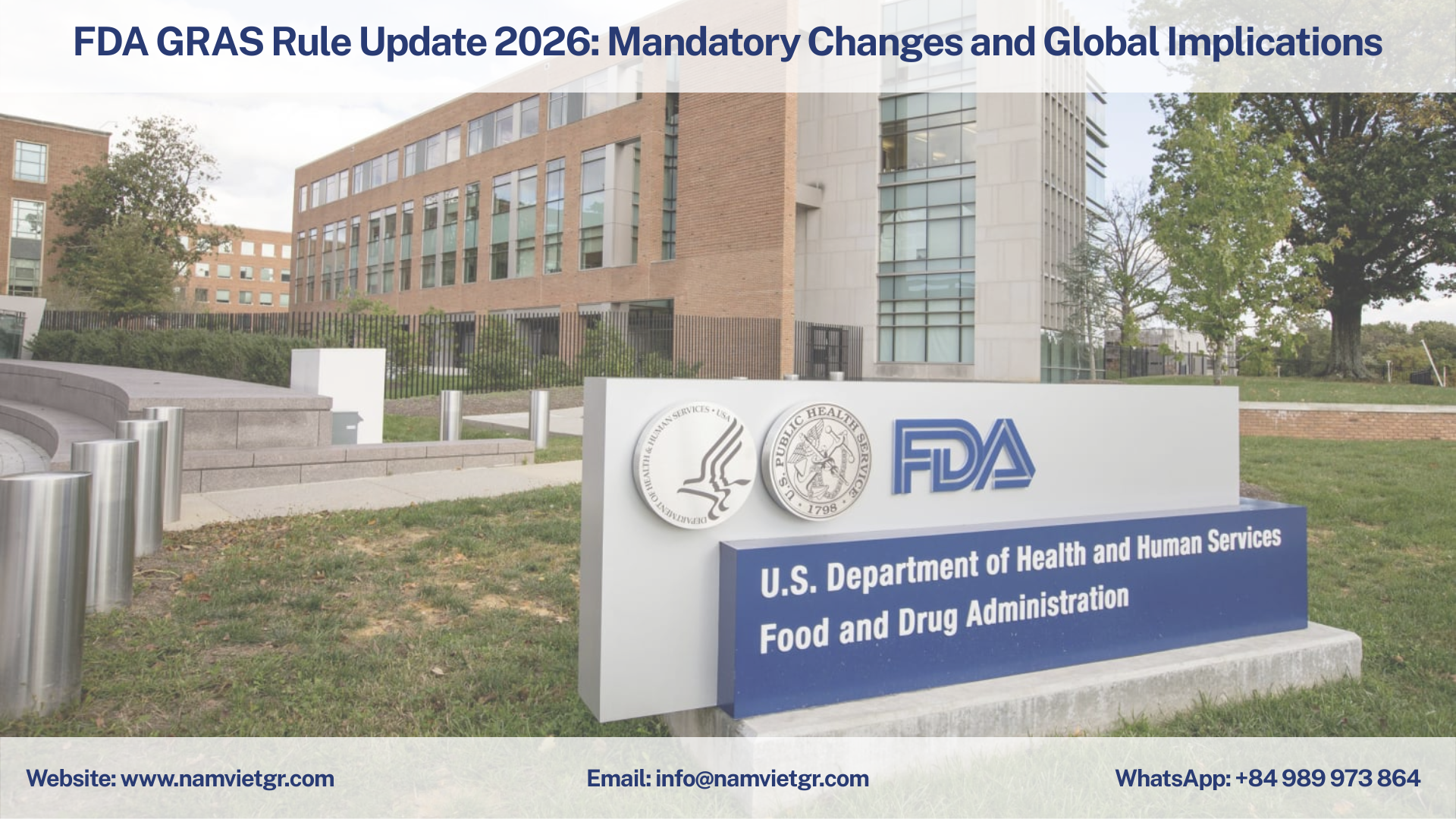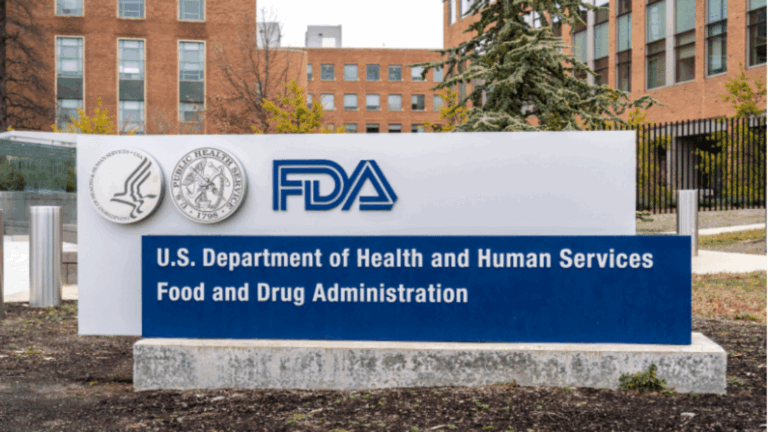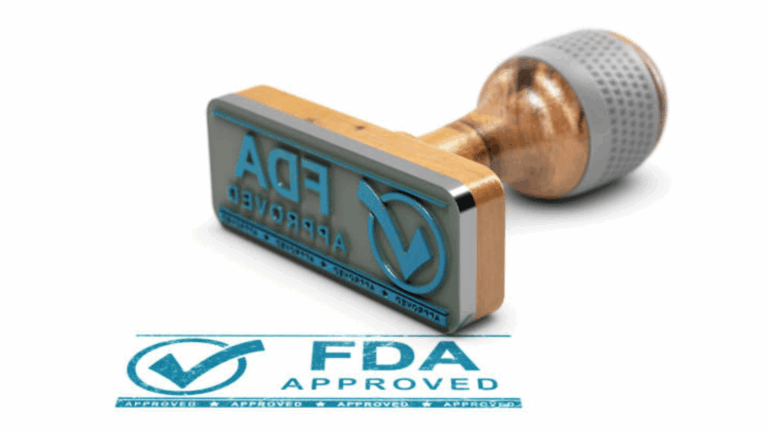FDA GRAS Rule Update 2026: Mandatory Changes and Global Implications

The FDA GRAS rule is set for major changes in 2026, ending self-affirmed GRAS. Learn what the proposed mandatory update means for global food brands.
Introduction: What Is the FDA GRAS Rule?
The FDA GRAS rule — “Generally Recognized As Safe” — is one of the most important frameworks in U.S. food regulation. It allows ingredients to be considered safe for use in food without undergoing the full food additive approval process, provided that qualified experts agree on their safety based on publicly available scientific data.
For decades, companies have had two options:
GRAS notification: submitting safety data to FDA for review.
Self-affirmed GRAS: making an internal safety determination without notifying FDA.
In 2026, this system will change. Under the FDA proposed mandatory GRAS rule 2026, all GRAS determinations will require notification to FDA, effectively ending the self-affirmed GRAS pathway.
Why FDA Is Proposing Mandatory GRAS Notifications
The FDA’s decision to update the FDA GRAS rule is driven by three major factors:
Transparency: Critics argue that self-affirmed GRAS lacks transparency because safety data often remains internal to companies. The proposed rule would require companies to submit all GRAS notices to FDA, ensuring public access through the GRAS inventory.
Public health protection: Some ingredients previously entered the market under self-affirmed GRAS later raised health concerns. FDA wants stronger oversight to protect consumers.
Consistency: A single, mandatory pathway will standardize reviews, making U.S. practices more aligned with international expectations.

Key Elements of the FDA Proposed Mandatory GRAS Rule 2026
According to the Unified Regulatory Agenda:
End of self-affirmed GRAS: Companies will no longer be allowed to market ingredients based solely on internal safety reviews.
Mandatory FDA review: All GRAS determinations must be formally submitted to FDA.
Public GRAS inventory: FDA must maintain and update a searchable GRAS notice database.
Exemptions: Substances already listed as GRAS or those that have received a “no questions” letter remain valid.
Currently, FDA has reviewed over 1,000 GRAS notices and processes an average of 75 notices per year. With the elimination of self-affirmed GRAS, this workload will increase significantly.
Industry Impact: Food, Beverage, and Private Label
Large multinationals
Major corporations already familiar with FDA notifications will adapt more easily, though they may face longer review times and higher compliance costs.
SMEs and startups
Smaller firms may experience the greatest challenges. Preparing a GRAS dossier requires toxicology expertise, legal support, and financial investment — barriers that could slow down innovation.
Private label brands
The FDA GRAS rule update is especially relevant for private label. Many private label products rely on suppliers using self-affirmed GRAS ingredients. From 2026 onward, private label retailers will need to verify that all suppliers comply with FDA’s mandatory GRAS pathway.
Global Implications: Beyond the U.S.
Although the FDA GRAS rule is a U.S. regulation, the effects will be global:
European Union: The European Food Safety Authority (EFSA) requires pre-market approval for novel ingredients. FDA’s proposed mandatory pathway narrows the gap between U.S. and EU standards.
Asia-Pacific & emerging markets: Many regulators benchmark FDA standards. Mandatory notification could set a precedent for stricter food safety regimes worldwide.
International trade: Exporters to the U.S. will need to ensure ingredient compliance with FDA’s updated process, potentially harmonizing safety standards across borders.
Opportunities and Risks of the FDA GRAS Rule Update

Risks of the FDA GRAS Rule
Higher costs: SMEs will face higher expenses for expert reviews and FDA submissions.
Delays: More FDA oversight may extend time-to-market.
Pressure on innovation: Smaller players may slow down product launches.
Opportunities Created by the FDA GRAS Rule
Consumer trust: Mandatory oversight will boost confidence in ingredient safety.
Competitive advantage: Early adopters of the FDA GRAS rule changes may gain market trust and regulatory credibility.
Global alignment: The U.S. framework will increasingly match international standards, simplifying cross-border compliance.
Conclusion
The FDA GRAS rule update 2026 will reshape global food safety standards, ending self-affirmed GRAS and demanding greater transparency. At Nam Việt Group, we see this not only as a compliance challenge but also as an opportunity to strengthen trust, support private label growth, and align with international markets.
👉 Contact Nam Việt Group today to explore OEM, ODM, and private label manufacturing partnerships that meet the highest global compliance standards.
